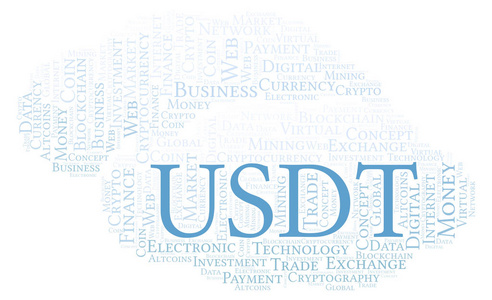|
|
Okay, the user mentioned "LIBERTY" and wants me to explain it. Let me start by recalling what I know about liberty. It's a fundamental concept in political philosophy and law, right? So I should probably define it first. Liberty generally refers to the freedom of an individual or group to express themselves, live without oppression, and make their own choices.
Wait, but there are different interpretations of liberty. I should mention the classical liberal view, which emphasizes individual rights and limited government. Then there's the social liberal perspective, which might balance individual freedoms with social welfare. Also, John Locke comes to mind with his natural rights to life, liberty, and property. Maybe I should include that.
Oh, and the American and French revolutions were centered around liberty. The Declaration of Independence and the Declaration of the Rights of Man and of the Citizen both highlight liberty as a key value. It's important to note historical contexts here.
But there's also the tension between liberty and security. For example, after 9/11, the U.S. implemented policies that some argue infringe on civil liberties in the name of national security. That's a modern example of the balance between these concepts.
I should also touch on economic liberty, like free markets and capitalism, versus government intervention. Then there's civil liberties versus political liberties. Maybe mention the First Amendment in the U.S. Constitution, which protects freedom of speech, religion, press, etc.
Wait, the user might be interested in the philosophical underpinnings. Thinkers like Rousseau, Montesquieu, and Mill. John Stuart Mill's "On Liberty" argues against societal interference in individual choices. That's a key text.
Don't forget different countries' approaches. Some prioritize individual liberty more, others have more collective or state-oriented models. Also, the role of international organizations like the UN in promoting liberty as a universal right.
Potential criticisms: Liberty can be abused, leading to tyranny of the majority or enabling harmful actions. There's also the question of whose liberty is being protected—often, power structures may protect their own interests under the guise of liberty.
I should structure this into sections: definition, historical context, philosophical perspectives, modern challenges, and criticisms. Make sure to cover both positive aspects and the complexities involved. Use examples to illustrate points, like the civil rights movement in the U.S. fighting for liberty against systemic oppression.
Check if there are any current events related to liberty. Maybe discussions around surveillance, privacy laws, or free speech debates on social media. Also, mention how different political ideologies view liberty—libertarians vs. conservatives vs. progressives.
Need to ensure the explanation is clear and comprehensive without being too technical. Avoid jargon where possible, but still cover the necessary concepts. Maybe conclude with the importance of liberty in democratic societies and its ongoing evolution.
Liberty: A Comprehensive Overview
1. Definition and Core Concepts
Liberty is a foundational principle in political philosophy and law, encompassing the freedom of individuals or groups to express themselves, live without oppression, and make autonomous choices. It often intersects with concepts like equality, justice, and human rights.
2. Historical Context
Classical Liberalism: Rooted in thinkers like John Locke, emphasizing natural rights to life, liberty, and property, and the role of limited government.
Revolutionary Movements: Central to the American (1776) and French (1789) Revolutions. The U.S. Declaration of Independence and French Declaration of the Rights of Man and of the Citizen enshrined liberty as a core value.
Modern Evolution: The Civil Rights Movement (1950s–60s) in the U.S. fight against systemic oppression, and global advocacy for universal human rights through organizations like the UN.

3. Philosophical Perspectives
Classical Liberalism: Prioritizes individual autonomy and minimal state intervention (e.g., John Stuart Mill’s On Liberty, advocating against societal interference).
Social Liberalism: Balances individual freedoms with collective welfare (e.g., government role in ensuring healthcare and education).
Conservatism: Often emphasizes traditional institutions and ordered liberty, sometimes at odds with progressive reforms.
Marxism: Critiques liberty as a tool of capitalist exploitation, advocating for collective freedom through systemic change.
4. Key Areas of Application
Civil Liberties: Legal protections like free speech (First Amendment in the U.S.), privacy, and due process.
Economic Liberty: Free markets vs. regulated capitalism; debates over taxation, labor rights, and wealth inequality.
Political Liberty: Voting rights, assembly, and opposition to censorship.
5. Modern Challenges and Tensions
Liberty vs. Security: Post-9/11 policies (e.g., Patriot Act) and debates over surveillance (e.g., NSA controversies).
Digital Age: Free speech vs. hate speech on social media, data privacy (GDPR), and AI ethics.
Globalization: Tensions between national sovereignty and international human rights standards.
6. Criticisms and Dilemmas
Abuse of Power: Liberty can enable majority tyranny (Rousseau’s "tyranny of the majority") or corporate dominance.
Inconsistency iberty often reflects power structures; marginalized groups may lack equal access to it. iberty often reflects power structures; marginalized groups may lack equal access to it.
Erosion in Crises: Fear-driven restrictions (e.g., COVID-19 mandates) testing the balance between public health and individual rights.
7. Ideological Perspectives
Libertarians: Advocate maximal individual freedom and minimal state.
Progressives: Push for structural reforms to expand liberty (e.g., LGBTQ+ rights, racial justice).
Conservatives: Focus on preserving traditional institutions and ordered liberty.
8. Current Debates
Free Speech: Controversies around hate speech, cancel culture, and academic freedom.
AI and Liberty: Ethical implications of algorithmic bias and autonomous decision-making.
Climate Policy: Balancing individual consumption rights with environmental collective action.
9. Conclusion
Liberty is a dynamic, contested ideal critical to democratic societies. Its interpretation evolves with societal values, technological advancements, and global challenges. While essential for human dignity, its realization requires vigilance against abuse and ensuring inclusivity for all. The ongoing struggle to define and protect liberty reflects humanity’s pursuit of both individual and collective flourishing.
|
|